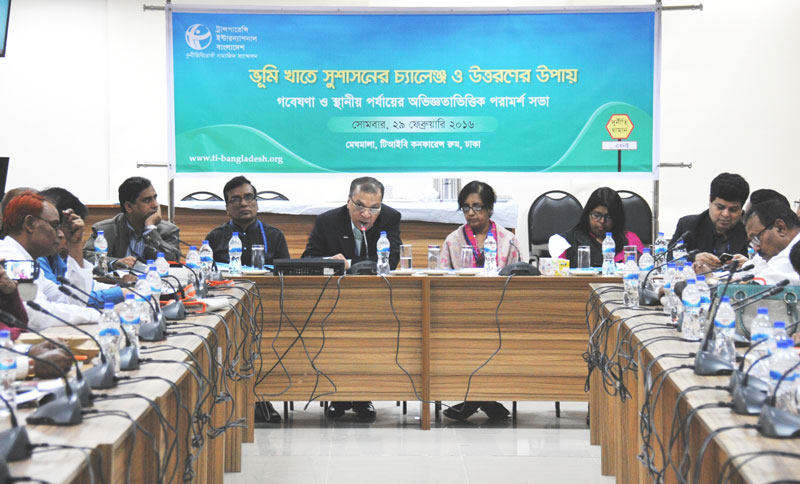Published: 29 February 2016

Published: 29 February 2016
 Over the decades, the government has taken numerous policy measures to reform land administration and management to make land services accessible and people oriented. In this context, the government has identified land as one of its priority areas in the 7th Five Year Plan. Given the paramount importance of land sector, TIB decided to work on land sector and pursue advocacy campaign both at local and national level to bring necessary policy changes to fight against corruption and improve governance in land sector. Some 48 participants representing Presidents, Conveners of Land Committees and land related CSO partners from (Bagerhat, Barisal, Chandpur, Gazipur, Khagrachori, Chapainababgonj etc) attended the consultation.
Over the decades, the government has taken numerous policy measures to reform land administration and management to make land services accessible and people oriented. In this context, the government has identified land as one of its priority areas in the 7th Five Year Plan. Given the paramount importance of land sector, TIB decided to work on land sector and pursue advocacy campaign both at local and national level to bring necessary policy changes to fight against corruption and improve governance in land sector. Some 48 participants representing Presidents, Conveners of Land Committees and land related CSO partners from (Bagerhat, Barisal, Chandpur, Gazipur, Khagrachori, Chapainababgonj etc) attended the consultation.Copyright © 2025 Transparency International Bangladesh